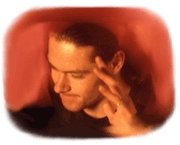The Power of Personality
What makes one person rush forward, eager to experience the world, while another holds back? Personality. Unraveling the mysteries of your behavior patterns can help you discover ways to enrich your life and relationships and work more effectively.
Great minds have pondered the complexities of personality, temperament, and health for centuries. As far back as Hippocrates in 400 BC, theories of personality have been of interest to people who study human behavior.
Forty years ago, doctors noted a link between personality and health, dubbing competitive, rushing, and angry types who often experienced heart problems as Type A personalities.
Those with a more laidback style were designated Type B. A few years later, aCaliforniapsychologist described typical behavior of cancer patients holding in negative feelings and anger and called people who exhibit these traits Type C personalities.
Personality and temperament also affect how we perceive the world and get along with others. Therapists, leadership development gurus, and other professionals use type and temperament models to help people learn more about themselves, appreciate differences in others, and improve family and work relationships. One popular methodology is the Myers-Briggs classification.
Myers-Briggs
During the 1950s, Isabel Myers and Katheryn Briggs developed a method of personality identification based on Carl Jung’s theory of psychological types. The Myers-Briggs Type Indicator relies on a series of questions to determine which of 16 classifications best fits the respondent. The type patterns correlate with pairs of personality preferences:
- Extroversion vs. introversion— Working with others energizes social extroverts, while solitude pleases introverts.
- Intuiting vs. sensing— Intuiting types tend to anticipate the future and read between the lines, while reality and facts ground those with a preference toward sensing.
- Thinking vs. feeling— Thinking types favor logical and impersonal decisions, while a preference toward personal or value-based judgments characterizes feeling types.
- Judging vs. perceiving— Following through on deadlines and plans rather than keeping options open and letting things evolve are the characteristics that distinguish judging from perceiving types.
People don’t fall neatly into categories, nor can they depend solely on a test to accurately determine personality type. A certified trainer can facilitate the evaluation, often using multiple models from different perspectives.
Self-discovery
 “What’s important is the self-discovery process,” says author Linda V. Berens, PhD, director of the Temperament Research Institute, a professional training and organizational development company inHuntington Beach,California. “Most people find value in learning their [personality] type because it helps them acknowledge they are okay.”
“What’s important is the self-discovery process,” says author Linda V. Berens, PhD, director of the Temperament Research Institute, a professional training and organizational development company inHuntington Beach,California. “Most people find value in learning their [personality] type because it helps them acknowledge they are okay.”
Many find that acceptance energizing. In addition, knowledge of predominant patterns gives people the ability to call on nondominant characteristics. Berens explains, “In my experience, it works out best to lead with your preferences and work out the others,” she says. “You have to use them all, not just your preferences.”
Myers-Briggs in Practice
“We’ve found that most effective leaders use all 16 personality types based on the needs of the situation,” says Peter Hammerschmidt, PhD, a professor at Eckerd College Leadership Development Institute inSt. Petersburg,Florida. Once students understand the traits, he helps them learn to move in and out of all 16 types as needed.
“When we’re not aware, we move toward what makes us comfortable, not necessarily effective,” Hammerschmidt explains. “Stepping into another person’s Myers-Briggs type is like traveling in a foreign culture. But when you do step in, things work out better.
You communicate better and value what others bring to the team.” For instance, the logical person who needs to become more approachable might schedule time walking around the office getting to know others.
Your Exploration
Investigate personality type methodologies and select a certified guide who has experience working with type in the context of your goals, whether career or personal.





